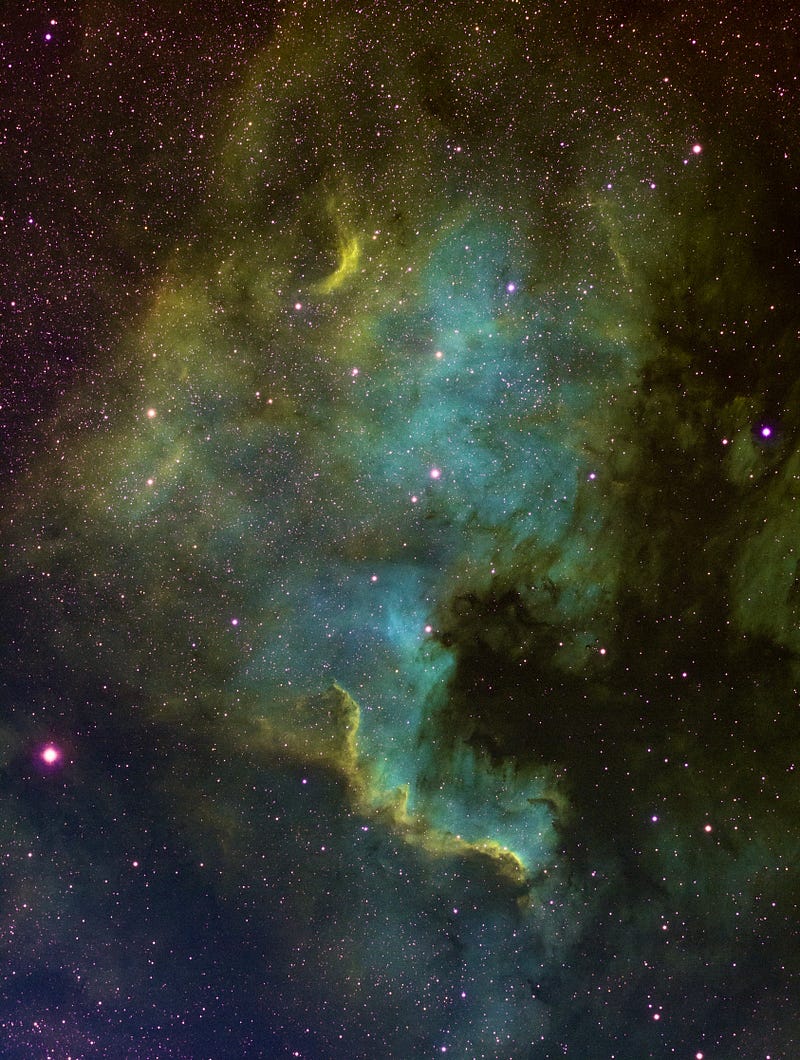# The Evolution of Natural Philosophy and Science: A Journey Through Time
Written on
Chapter 1: The Origins of Natural Philosophy
The roots of modern science can be traced back to natural philosophy, as highlighted by Maxwell (2017) and McGrath (2023). In the era of Sir Isaac Newton, the fields of physics, chemistry, and other natural sciences were intertwined with philosophy, creating a unified approach known as natural philosophy (McGrath 2023). However, from the 18th century onwards, philosophers of science have observed an increasing disconnection between empirical facts and underlying values (McGrath 2023, 181; Pigden 2010).
Philosophy holds a crucial place in the history of science, often referred to as the foundational discipline from which all scientific inquiry emerges (Pernu 2008, 29). Each scientific discipline, from this viewpoint, has philosophical roots (Pernu 2008, 30). Nevertheless, philosophical analysis is noticeably absent from the forefront of contemporary scientific practice (Salmon 1998).
The journey of natural philosophy began around 340 BCE, when Aristotle initiated his studies of the natural world on the Aegean island of Lesbos (McGrath 2023, 182). McGrath identifies the 17th century as a pivotal time for natural philosophy (McGrath 2023, 2, 182; Henry 1997). Alister McGrath observes that this intellectual domain gained significance in Western Europe during the late modern period (McGrath 2023, 3).
According to Ann Blair, the term "natural philosophy" was prevalent in the early modern era, broadly encompassing the study of natural entities (Blair 2006). McGrath, however, prefers to view natural philosophy as a historical phenomenon (McGrath 2023, 5). In contemporary discourse, it is often regarded as an outdated term, while also being recognized as an interdisciplinary field (McGrath 2023, 3). Blair notes that it serves as an umbrella term for the study of nature, which was once synonymous with "science" (Blair 2006).

Photo by Aldebaran S on Unsplash
Chapter 2: The Transformation of Terminology
Natural philosophy has largely been replaced by the natural sciences, as noted by McGrath (2023, 5). The term has different interpretations across languages. For instance, the French "philosophie naturelle" carries connotations related to hermetic or alchemical studies, unlike its English counterpart (Blair 2006; McGrath 2023, 42, 43). Conversely, in German, "naturphilosophie" refers to the study of the unifying forces of nature (Blair 2006).
The label "scientist" emerged in the mid-19th century (McGrath 2023, 1; Ross 1962). This designation has come to symbolize a title of honor (Ross 1962, 65), gaining prominence among various professionals, including engineers, economists, and psychologists. As the 20th century progressed, discussions arose about the legitimacy of the term against various alternatives (Ross 1962, 65, 66). Ross argues that the rising prestige of physical sciences in the 19th century allowed them to claim the title previously associated with all forms of knowledge (Ross 1962, 70).
McGrath emphasizes this evolution when discussing Newton's role as a natural philosopher (McGrath 2023, 1). Ross highlights that this linguistic debate reflects a significant shift in the practice of science from amateur enthusiasts to professional scholars (Ross 1962, 65).
The term "science" itself was adopted into English during the Middle Ages, derived from the French word for "knowledge" (Ross 1962, 66). Over time, the meaning of "science" has evolved (McGrath 2023; 5; Brown 1992). The adjective "scientific" implies a relationship to science, though its etymological roots suggest a focus on "producing knowledge" (Ross 1962, 67).
The distinction between general knowledge and scientific knowledge is crucial, as it underscores the unique nature of science (Ross 1962, 67, 68). The sciences recognized by scholastic philosophers were essentially specialized branches of philosophy (Ross 1962, 68; Blair 2006), driven by curiosity and a desire to expand intellectual boundaries (McGrath 2023, 18).
Ross identifies seven scholarly disciplines from medieval education: grammar, logic, rhetoric, arithmetic, music, geometry, and astronomy (Ross 1962, 68). This diverse array of Aristotelian philosophy dominated thought for nearly five centuries (1200–1700), during which natural philosophers synthesized insights from various domains to formulate their unique perspectives (McGrath 2023, 4). This foundational work laid the groundwork for future advancements.
Despite its enduring legacy, traditional natural philosophy faced challenges during the Renaissance (Blair 2006), primarily driven by a growing skepticism regarding the sufficiency of empirical observation (McGrath 2023, 38). As new sciences emerged, they were categorized into three primary domains: natural sciences, moral sciences, and first philosophy science, the latter referring to metaphysics (Ross 1962, 68).
From 1620 to 1830, a noticeable shift in philosophical perspectives on the origins of scientific knowledge occurred (Ross 1962, 67, 68). The 17th century marked the dawn of new physical sciences, characterized by Peter Medawar's identification of two transformative elements: the pace of innovation and the notion of futurity (Medawar 1997).
Explore the true history of continental drift in this enlightening video, which delves into the pivotal moments that shaped our understanding of Earth's geological processes.